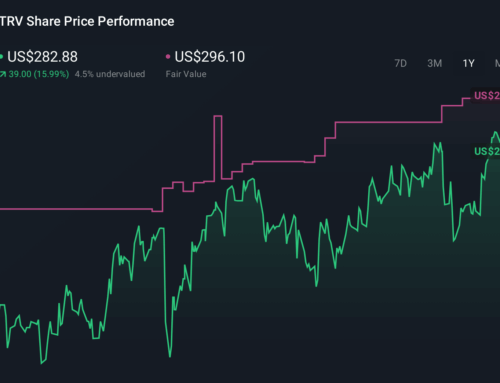Wall Street may have overplayed fears around capital expenditure
May 27, 2025
Corporate America appears to be investing in growth.
by Natalia Kniazhevich and Mathieu Benhamou
Wall Street’s fear that trade-war anxiety would grind corporations’ spending on machinery and real estate to a halt, so far, is looking a little overblown.
President Donald Trump’s barrage of ever-changing tariffs on US trading partners has yet to convince much of Corporate America to pull back capital expenditure plans for this year. After pouring in a record amount of money to build their businesses in the final quarter of 2024, companies are forging ahead – a promising sign for the durability of the stock market’s rebound from last month’s lows.
Roughly 71% of the Russell 3000 companies that provided capex guidance since Trump rocked markets with his April 2 tariffs have maintained their outlooks for this year, according to data compiled by Bloomberg. About 8.5% of firms increased forecasts and 18% revised them lower, with just 3% withdrawing guidance. Industrials was the leading sector in maintaining spending plans during the last earnings cycle, based on the number of companies affirming capex.
“Capex spent on US firms will naturally bolster their revenues and the net effect should be positive near-term for the stock market as investors tend to reward higher revenues more than they penalize higher capex going to prudent causes,” said Max Gokhman, deputy chief investment officer at Franklin Templeton Investment Solutions.
A Goldman Sachs Group Inc. basket of companies with the highest capex spending is up 2.1% since Trump introduced unexpectedly steep levies on global trade partners in early April, in line with the S&P 500 Index.
While the S&P 500 has bounced back since early April on easing tariff tensions, Gokhman noted the longer-term outlook for the market is still uncertain as the trade war could intensify at any given moment and eventually pressure US economic growth.
On Friday, the market was rattled by Trump’s tariff threats against Apple Inc. and the European Union, with the benchmark closing lower by 0.7%.
The signs of steady capex guidance also comes amid mixed economic data. US manufacturing activity shrank in April by the most in five months as lean order books and the repercussions from tariffs prompted the steepest output contraction since 2020. Meanwhile, the latest surveys from the Kansas City, New York and Philadelphia Feds showed business conditions continued to contract in May, but at a slightly slower pace than April.
“Despite so much uncertainty, if you’re a manufacturer, there’s going to be adjustments to the supply chain so I think most industrial companies would at least hold their capex unchanged,” said Nick Pinchuk, president and CEO of Snap-on Inc., a Wisconsin manufacturer for the transportation industry. The company has 36 factories around the world, 15 of which are in the US and 80% of products sold in the US are made domestically.
“One of the things that is clear with tariffs is that you want to expand your business in the US,” added Pinchuk, who projects his firm’s spending will be up 19% this year from last.
Tech giant Alphabet Inc. reiterated its full-year capex guidance of $75 billion, while Meta Platforms Inc. increased its projected spending this year to as much as $72 billion from as much as $65 billion earlier in the year. Even smaller firms are following suit.
Apptronik Inc., a Texas-based robotics company, recently raised $350 million from investors including Google to scale the production of its humanoid robot.
“They’ll have over a billion dollars in orders from domestic auto manufacturers and companies that need to do logistics, so we’re still feeling a lot of aggressiveness and animal spirits in terms of investing,” said Ravin Gandhi, founder and CEO of Glenborn Partners, an investment fund that focuses on technology, consumer, and manufacturing deals.
Copyright Bloomberg News
Search
RECENT PRESS RELEASES
Related Post



